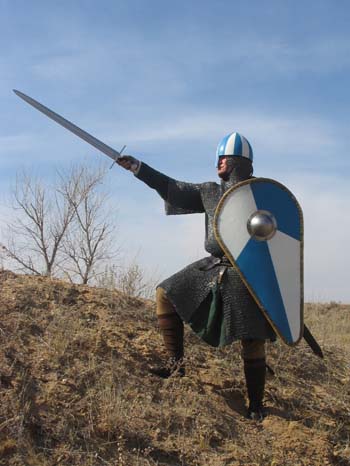After having a search for ways to get galvinisation off my cheap (but riveted :D ) repo-maile, there didn't seem to be one certain way or indeed a safer way other than using acid and risking poisining.
So I was wondering, how would you fine people go about doing it, and indeed if you have done it, then how?
And if all else fails, let this be a maile armour thread!
Oh, and here's the offending kit/maille.

I was part of a protest. Can you guess what for? :D
